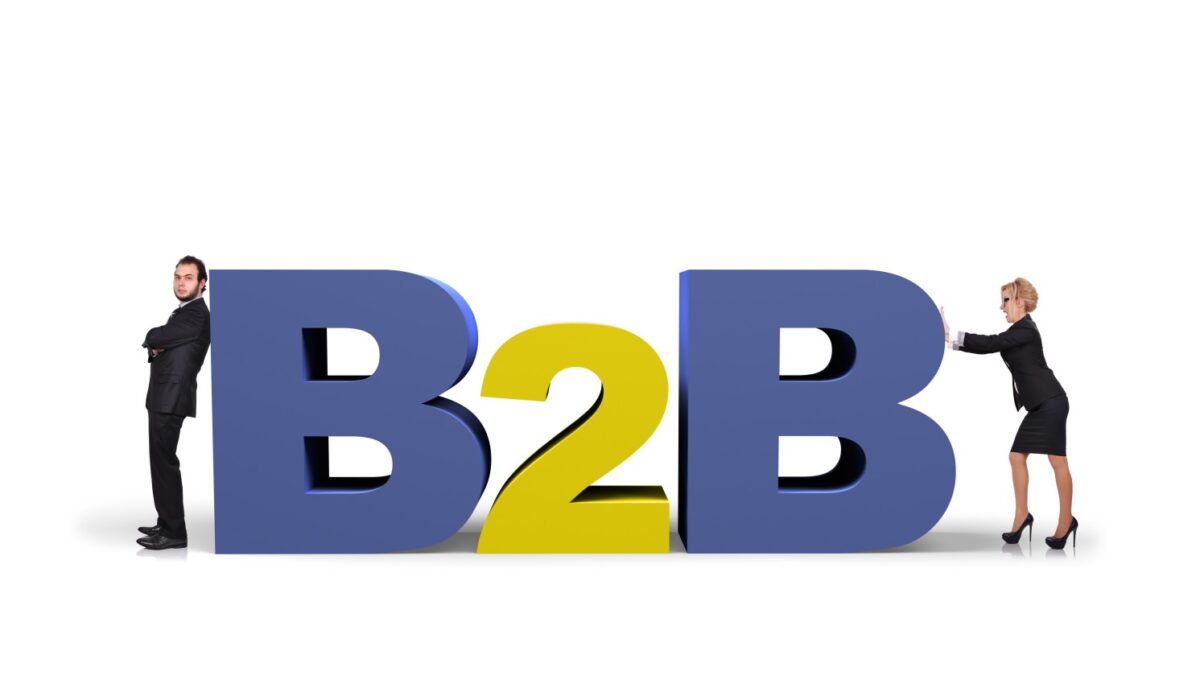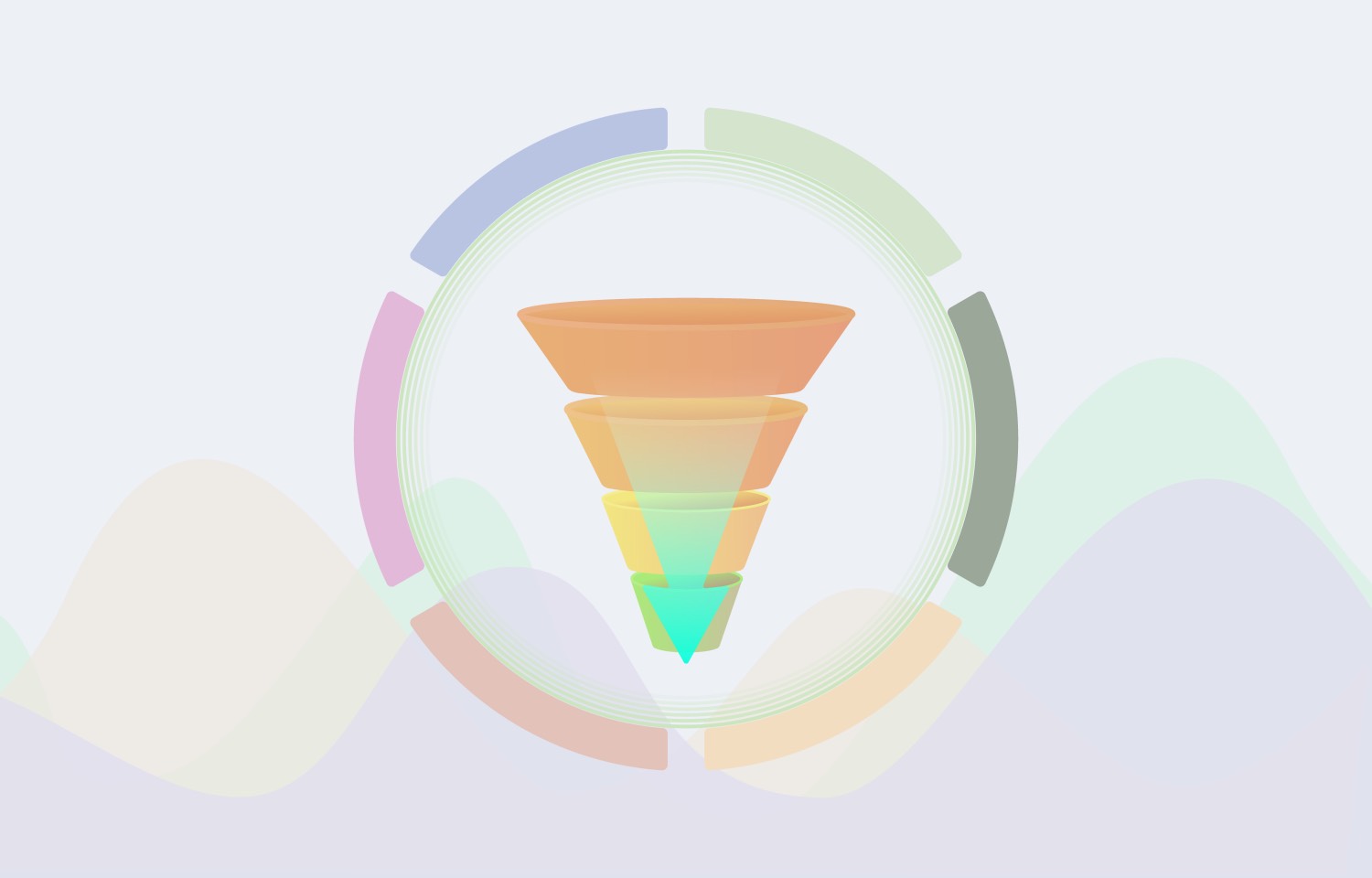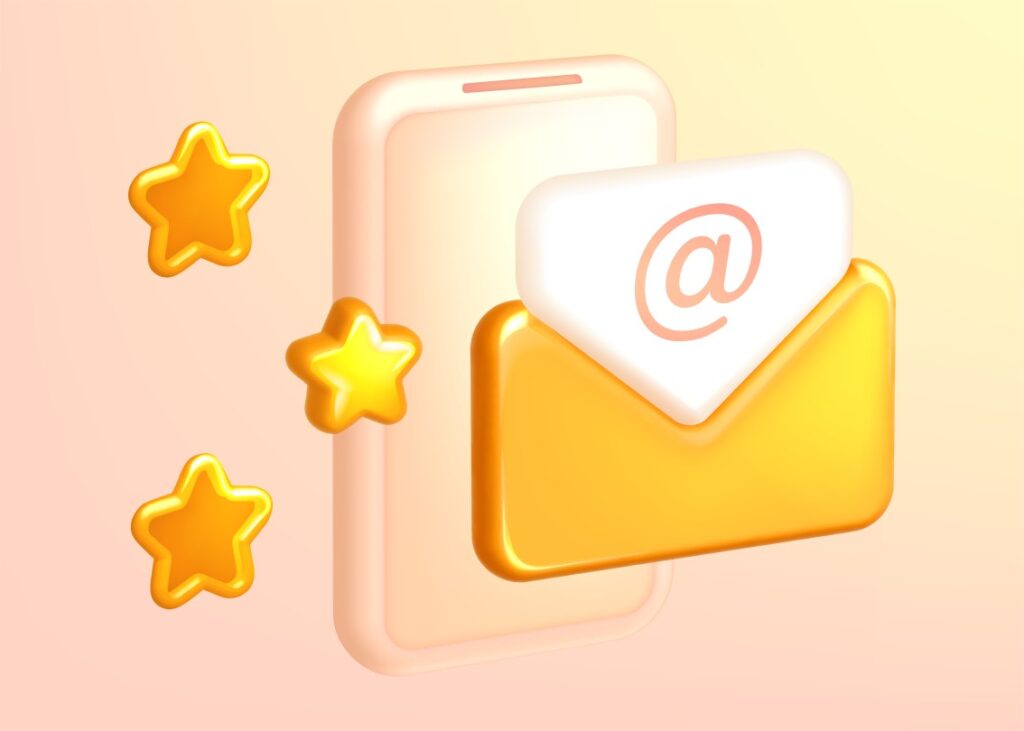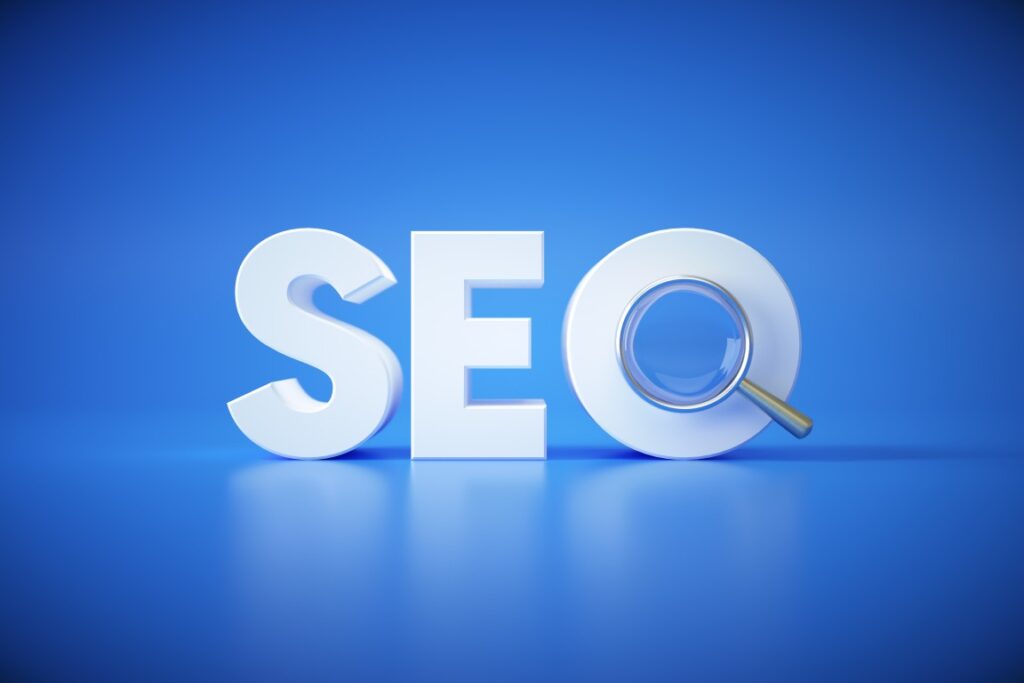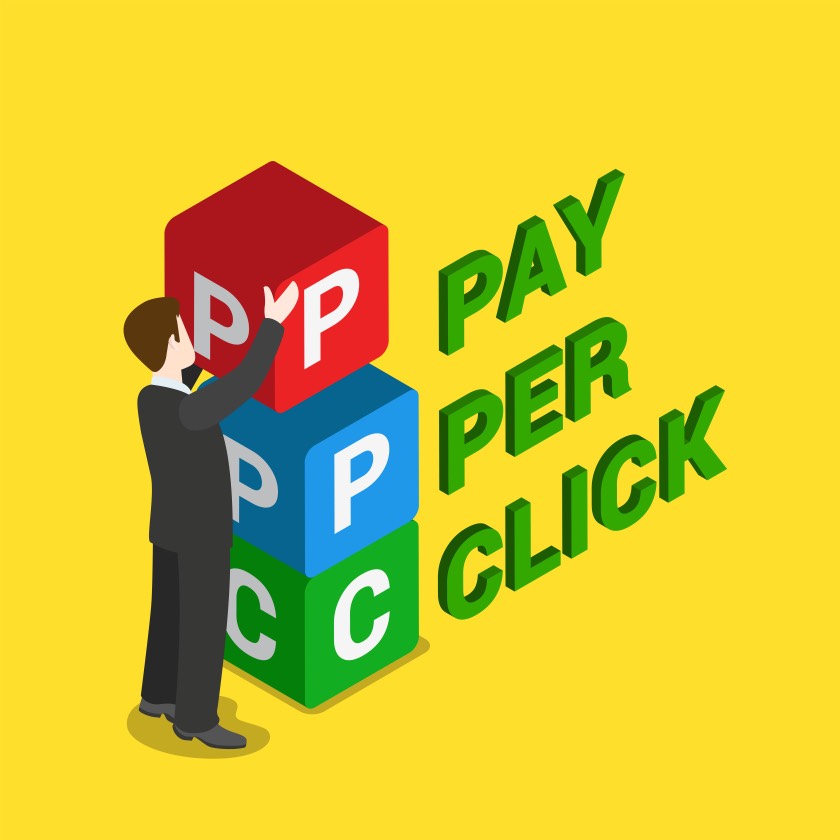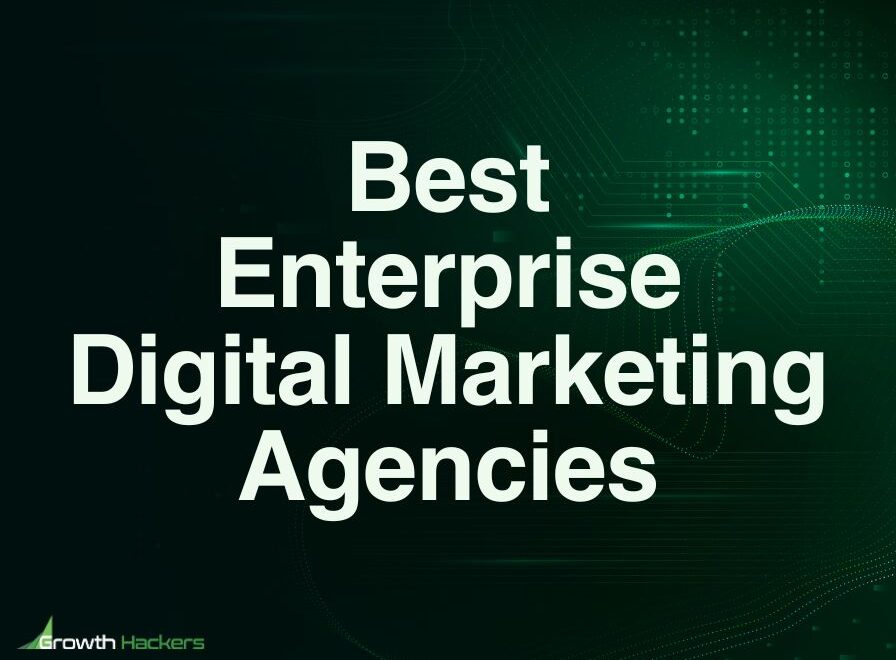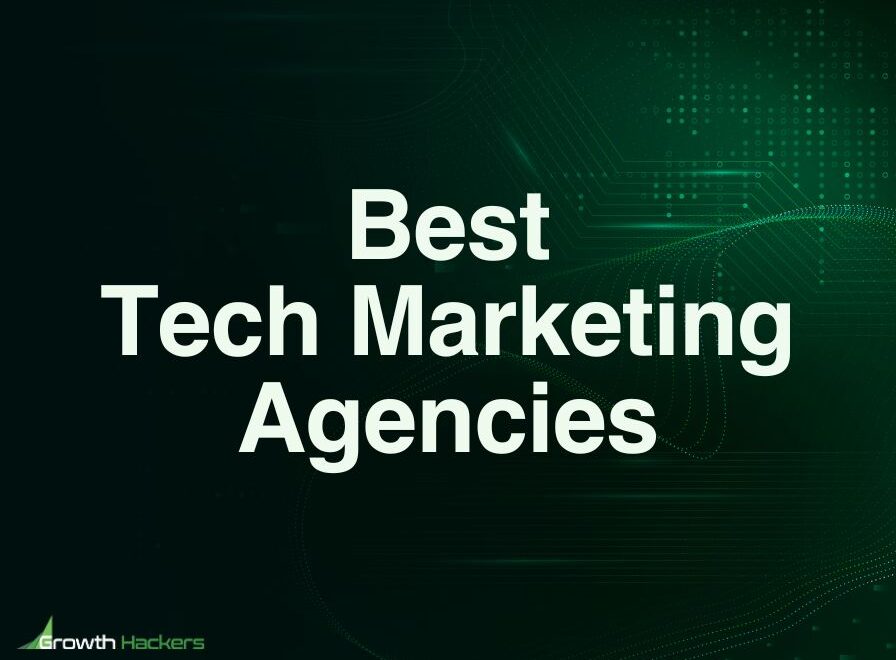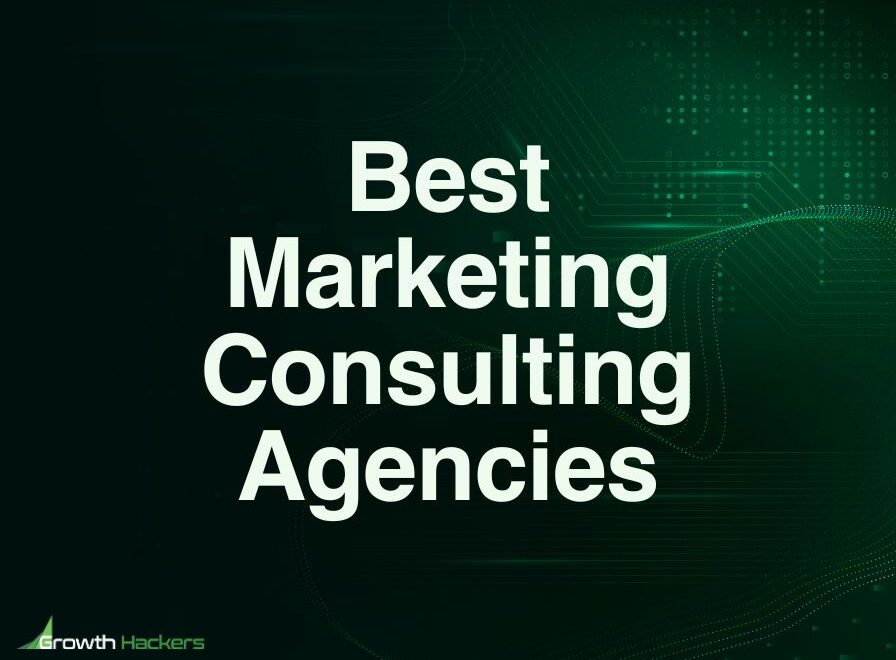B2B marketing companies will never admit that their inbound marketing efforts are poorly planned. And yet statistics indicate that the biggest challenge of any B2B digital marketing strategy is generating leads and traffic in the attempt to prove ROI on marketing efforts.
The next best determinant of an effective marketing strategy is getting the target audience right. If the basic buyer personas aren’t effectively created and targeted then there lies no meaning in promoting your advertisements and products.
What You Need to Know About B2B Marketing?
In B2B marketing, knowing your target audience matters greatly. Marketing can be targeted to a broad range of consumers, but B2B marketing involves segmenting individual and business consumers.
Many brands and companies cater to individual shopping needs while others cater to businesses or organizations as a whole. Similarly, the business-to-business marketing strategies vary greatly from individual demands to business demands.
B2B marketing exists for this reason, as a completely different marketing strategy to address B2B business goals. In this article, you’ll learn all there is to know about B2B marketing, its benefits, and how you can develop an efficient B2B marketing strategy framework for your business.
What Do We Mean by a B2B Marketing Strategy?
A B2B marketing strategy is a plan for how a business will engage with other businesses to promote its products or services. The strategy should consider the target audience, the channels through which they can be reached, and the message that will be most effective in persuading them to take action.
The purpose of a well-defined B2B marketing strategy is to identify your target audience, understand their needs and pain points, and then craft a message that resonates with them.
Additionally, a well-defined B2B marketing strategy will help you to focus your limited resources on the most effective activities.
By taking the time to develop a comprehensive B2B marketing strategy, you’ll be able to better connect with your existing customers, and your target audience, and ultimately generate more leads and sales.
How Different is B2B From B2C Marketing?
When it comes to marketing, businesses generally fall into one of two categories: business-to-business (B2B) or business-to-consumer (B2C). While there are some similarities between the two, there are also some key ways in which they differ.
1. Product Marketing
Perhaps the most obvious difference is in the type of product or service being marketed. B2B products and services are typically more complex than those designed for consumers, and as a result, require a different type of marketing approach. That’s why you should choose and track different marketing B2B KPIs than B2C ones.
For example, B2B marketing materials often include more technical information and jargon than those aimed at consumers.
2. Target Audiences
Perhaps, above all, it’s the audience segment and their goals and needs that matter the most. In B2B marketing, companies or consumers are primarily focused on the net ROI, expertise, and overall efficiency.
In B2C marketing, marketing should be made more fun, relevant, and entertaining since consumers are seeking out deals to make their purchase worth their efforts.
3. Purchase Intent
The need for B2B marketing arises from consumers who require learning more about a service or product; they need to be educated about the offer which calls for B2B content marketing tactics.
In the case of B2C marketing, customers find all the answers they need from the search engines and oftentimes don’t require to be educated to make the final purchase decision.
4. Purchase Motivation
Another key difference is in the way that businesses and consumers make purchasing decisions. B2B purchases are usually made by a team of decision-makers, each of whom may have their own specific needs and concerns.
In contrast, B2C purchases are typically made by individuals who are more influenced by emotions and personal preferences. As a result, B2B marketing efforts often focus on building relationships and demonstrating expertise, while B2C campaigns tend to be more heavily focused on emotional appeal.
5. Varied Budgets
Also, the typical budget for B2B marketing is usually much larger than that for B2C marketing. This is due to the fact that B2B products and services often have a higher price point than those designed for consumers.
6. Sales Cycle and the Purchase Purpose
B2B marketers also often have longer sales cycles, so they need to be very strategic in their marketing efforts and focus on creating relationships with their potential customers. In contrast, B2C marketers typically have shorter sales cycles and are more focused on creating an emotional connection with their audience.
Additionally, businesses tend to be more willing to invest in long-term marketing initiatives that will support their ongoing sales efforts. For all these reasons, B2B marketing requires a specialized skill set and perspective in order to be successful.
While there are some similarities between B2B and B2C marketing, the two types of marketing require different strategies and approaches in order to be successful.
Do you need help creating a successful B2B marketing strategy framework ?
Contact Growth Hackers
B2B Marketing Channels You Can Tap Into
When your marketing team undertakes a competitive analysis of your existing market competition, you’ll be able to see which marketing channel is being underutilized or overutilized and adjust the balance accordingly.
There are many B2B marketing channels available to businesses. These include email, social media, search engine optimization (SEO), pay-per-click (PPC) advertising, content marketing, and tradeshows and events. The most effective channels will vary depending on the products and services being marketed, the target audience, and the budget.
B2B Email Marketing
Email marketing is a powerful tool for B2B businesses. It allows you to build relationships with potential and current customers, generate leads, and drive sales. But email marketing is also a complex and ever-changing landscape. To be successful, you need to stay up-to-date on the latest best practices and trends.
Here are four tips for B2B email marketing success:
1. Keep your list clean and up-to-date
2. Personalize your messages
3. Segment your list
4. Test, test, test
B2B Social Media Marketing
As a business-to-business (B2B) marketer, you may be wondering if social media marketing is right for your business. After all, the majority of social media users are individual consumers, not businesses.
However, B2B social media marketing can be an effective way to reach your target audience and achieve your marketing goals. Here are a few things to keep in mind as you develop your B2B social media strategy:
- First, consider which social media platforms your target audience is using. LinkedIn is a good choice for B2B marketers, as it has a high percentage of business users. However, depending on your industry and target audience, other platforms such as Twitter or Facebook may also be worth considering.
- Second, remember that B2B buyers are often more conservative than consumer buyers. They want to see evidence that you are a reputable and trustworthy company before doing business with you. As such, your social media content should be professional and provide value to your target audience. Avoid hard sell tactics or promotional messages that seem too good to be true – instead, focus on building relationships and providing relevant content and helpful information.
- Finally, make sure you have the resources in place to support your B2B social media marketing efforts. Social media requires regular engagement and updates, so you’ll need to allocate adequate time and budget to your activity.
B2B SEO
If you’re in the business-to-business (B2B) space, you know that search engine optimization (SEO) is essential to driving qualified traffic to your website. But what’s the best way to go about it? Here are a few tips for B2B SEO:
1. Do your keyword research
This is critical for any SEO effort, but it’s especially important in the B2B space, where the competition is often fierce. Use a tool like Google AdWords Keyword Planner to find relevant keywords for your business.
2. Optimize your website content
Once you have a list of targeted keywords, make sure your website content is optimized for those keywords. This means using the keywords throughout your content, including in the title, in the body, and the meta tags.
3. Build backlinks
Backlinks are links from other websites to yours. They’re an important ranking factor for SEO, so it’s important to build them up. There are a number of ways to do this, including guest blogging and social media outreach.
4. Monitor your progress
Finally, it’s important to monitor your progress to see how your B2B SEO efforts are paying off. You can do this using Google Analytics or another web analytics tool. This will help you identify what’s working and what needs further improvement.
B2B PPC Advertising
PPC, or pay-per-click, advertising is a type of online advertising in which businesses bid on keywords and phrases in order to have their ads appear on search engine results pages. When a user clicks on one of these ads, the business pays the advertising platform a fee.
B2B PPC advertising is a type of PPC advertising that is specifically geared towards businesses that sell products or services to other businesses.
If you’re thinking about using B2B PPC advertising to promote your business, there are a few things you should keep in mind.
- First, make sure you choose the right keywords and phrases for your campaign. Your goal should be to choose keywords that are relevant to your business and that have a high search volume but low competition.
- Second, make sure your ads are well-written and relevant to your target audience. Your ads should be clear and concise, and they should provide enough information to persuade users to click through to your website.
- Finally, make sure you track your results so you can see how effective your campaign is and make necessary adjustments.
B2B Content Marketing
B2B content marketing is the process of creating and distributing high-quality content (such as blog posts, eBooks, white papers, and infographics) that is relevant to your target audience and designed to help them achieve their own business goals.
The key to successful B2B content marketing is understanding what your audience needs and providing them with information that is both helpful and valuable.
When done correctly, B2B content marketing can help you build trust and credibility with your target audience, establish yourself as a thought leader in your industry, and generate leads and sales for your business by furthering marketing qualified leads.
Tradeshows and Events
Tradeshows and events can be excellent opportunities for B2B marketing. By attending tradeshows related to your industry, you can make new connections, learn about the latest trends, and find potential customers.
The key to success is to prepare in advance and have a clear goal for what you hope to achieve by exploring the marketing focus zones. For example, you might use tradeshows as an opportunity to gather leads or schedule sales meetings. You can also use them to launch new products or promote special discounts.
Whatever your goals, it’s important to have a plan for how you’ll engage with attendees through accurate competitor analysis. To get the most out of tradeshows and events, make sure you take advantage of all the marketing opportunities they offer.
Why Do You Need a B2B Marketing Strategy Framework?
When it comes to developing a marketing plan, there’s no one-size-fits-all approach. However, most effective marketing strategies share some common elements. A good place to start is with a framework to map out your sales funnel.
A framework provides a structure for your marketing campaigns and can help you to identify the key components that need to be included. It can also be a useful tool for troubleshooting if you find that your strategy isn’t achieving the desired results.
A B2B marketing strategy framework helps you map out your marketing goals and activities so you can more effectively achieve your desired results. Without a framework, it can be difficult to know where to start or how to measure your progress.
Your marketing team will take into account your budget, target audience, and other factors so you can create a customized plan that fits your needs. Additionally, a framework can help you stay organized and on track as you implement your marketing activities.
By outlining your goals and strategies in advance, you can avoid scrambling at the last minute and make sure that your marketing efforts are effective and efficient.
There are many different B2B marketing strategy frameworks available, but they all share some basic features. These usually include an analysis of your target market, objectives, budget, marketing tools, and key metrics. Your framework should also take into account the different stages of the buyer’s journey, and how you can move prospects through each stage.
Developing a strong B2B marketing strategy is essential for any business that wants to win in today’s competitive marketplace. By using a framework, you can ensure that your strategy is comprehensive and well-rounded, giving you the best chance of success.
Scale up your business by creating an effective B2B marketing strategy framework today!
Work with Growth Hackers
How Do You Create a B2B Marketing Strategy Framework?
Any successful business needs a plan—a roadmap to follow as they work to achieve their goals. This is especially true for businesses that operate in the B2B space. After all, B2B marketing is a complex beast, with its own unique challenges and considerations. To create a successful B2B marketing strategy, you need a framework that takes into account all of the different moving parts.
Here are the key components to keep in mind when developing a B2B marketing strategy framework for your business:
1. Segmenting the audience market and focusing on one segment
When it comes to marketing, there’s no one-size-fits-all approach. That’s why segmenting your audience is so important. By dividing your target market into smaller groups based on shared characteristics, you can create more personalized and effective marketing campaigns.
Not only will this lead to a higher ROI, but you’ll also build deeper relationships with your customers.
There are a number of different ways to segment your audience. The most common approach is to use demographic information, such as age, gender, location, and income level. But you can also segment your audience based on psychographic factors like lifestyle, interests, and values.
Once you’ve identified the different segments in your target market, you can start creating marketing campaigns that appeal to each group’s specific needs.
2. Creating ICPs for the market segments
Every business needs to have a target market segment, or they will never bring in the right type of customer. Once you know who your ideal customer is, you need to understand what their interests are so you can better craft your message.
This is where creating an Ideal Customer Profile comes in handy. An Ideal Customer Profile (ICP) is a description of your ideal customer, including demographics like age, gender, income, location, and interests.
Creating an ICP helps you to focus your marketing efforts on the individuals most likely to buy from you, and it can be used as a guide when creating new marketing materials. Once you’ve created your ICP, take some time to review it periodically to make sure it still accurately reflects your ideal customer.
3. Run a competitor analysis check
Any good marketing strategy should start with a thorough understanding of your competition. After all, if you don’t know who you’re up against, it’s difficult to develop a plan for how to beat them.
A competitor analysis check is a great way to get insights into your competition’s marketing strategies and tactics. By taking a look at what they’re doing well and where they could improve, you can develop a framework for your own marketing strategy that will give you the edge you need to succeed.
4. Develop USPs for each target segment
You need to develop a clear sense of what makes your company unique. This is where your USPs (unique selling points) come in. By clearly articulating what sets your company apart from your competitors, you can more effectively target your marketing efforts and ensure that your message resonates with your audience.
There are a number of ways to develop USPs for each target segment. Start by conducting a SWOT analysis to identify your company’s strengths and weaknesses. Then, take a close look at your competition and see what they’re doing well (and not so well).
Finally, solicit feedback from your current and potential customers to get a better sense of what they’re looking for in a business partner. It’s important to tailor your message and highlight the USPs that are most relevant to each target segment.
5. Lead your customers through their buyer’s journey
In order to tap into the audience that is inactive in making purchases in your sales funnel, you’ll want to consider leading your customers through their buyer’s journey after it has ended.
The buyer’s journey is the process that your potential customers go through when they’re evaluating their options and making a purchase decision. There are three stages to the buyer’s journey: awareness, consideration, and decision.
After the buyer’s journey has ended, you can continue to nurture your relationship with your customers through post-purchase follow-up. This can help you turn one-time buyers into lifelong fans and advocates for your brand.
6. Identify your goals and allocate resources and marketing channels
Before wrapping up your B2B marketing strategy framework, you need to establish your goals. What are you hoping to achieve with your marketing efforts? Once you have a clear understanding of your goals, you can begin to allocate resources and identify the most effective marketing channels.
For example, if your goal is to generate leads, you may want to invest in online advertising or content marketing. If your goal is to build brand awareness, you may want to focus on social media or public relations.
Once you have a solid plan in place, you can start to develop your strategic framework. This should include an outline of your objectives, target audience, key messages, and the tactics you will use to reach your goals.
Following these steps will help ensure that your B2B marketing strategy is built on a solid foundation and sets you up for success.
Get Started on Your Customized B2B Marketing Strategy Framework Today
Your business needs a B2B marketing strategy framework to succeed. This framework will ensure that your marketing strategies are integrated, focused, and align with your overall business objectives.
It will also help you measure and track your progress, so you can adjust your approach as needed. The most important thing to remember is that your B2B marketing strategy framework is a living document – it should be constantly evolving to keep up with the changing landscape of the marketplace.
At Growth Hackers, we’re an award-winning B2B marketing agency that understands that every business is different. That’s why we take a tailored approach to develop the ideal B2B marketing strategy framework for each of our clients.
We start by taking the time to get to know your business, your goals, and your target audience. With this information, we can develop a customized marketing plan that will help you achieve your desired results.
We also offer a wide range of digital marketing services, from search engine optimization (SEO) to social media marketing (SMM), that can be used to support your overall marketing strategy.
So if you’re looking for help developing a comprehensive B2B marketing strategy, Growth Hackers is the agency for you. Contact us today to learn more about what we can do for you.

